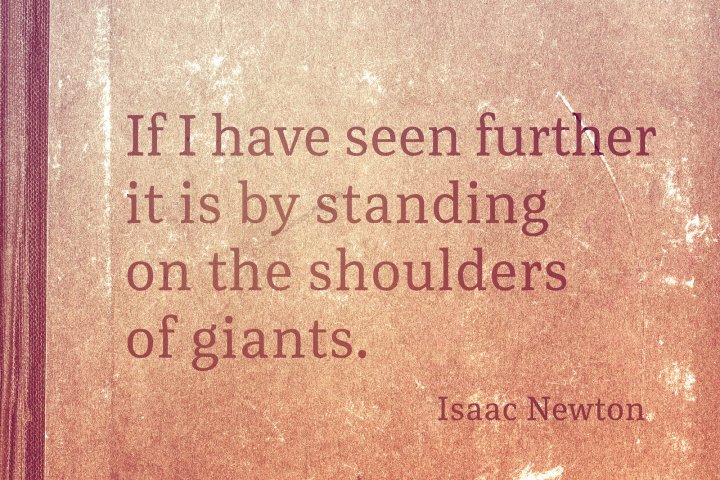Isaac Newton; a school boy, college graduate, mathematician, philosopher, theorist and inventor. He has had many titles and names given to him during his life, ones that we are all familiar with. Let’s take a more detailed look into the life of Isaac Newton.
Early Years
•Born on January 4th, 1642 in Wools Thorpe Lincolnshire England
•His birth date is actually recorded as December 25
•Isaac Newton was born three months after his father (an illiterate clergyman) had passed away.
•At birth he was so small that he could fit into a quart pot and was not expected to survive.
•At the age of three his mother married Barnabas Smith, a wealthy man living in a nearby village. His mother left Isaac in the care of his grandmother to live with her new husband. Naturally his mother leaving left Isaac feeling slightly abandoned and with some resentment toward his new stepfather. He often made violent threats about how he wanted to injure them.
•In 1653 Isaac’s mother returned home with three children after the death of her second husband.
•Newton was not a happy child and often had emotional breakdowns and violent attacks against friends and family members. This may explain why he involved himself so heavily in his schooling.
•Newton’s first experience with formal schooling was in the village schools. He was later sent to King’s School where he became a top student.
•In 1659 Isaac’s mother pulled him out of school to fulfill his duty at home; becoming a farmer. He was unhappy and proved to be a terrible farmer. His mother was persuaded to send him back to school to finish his education.
•Newton fell in love with a young woman named Anne Storer but as you can imagine he became too embodied with his scholastic studies and the romance fizzled out, and she married someone else. It seems that this would be his one true love.
Middle Years
•1661- possibly the turning point in Newton’s life when his uncle persuaded his mother to let him go to Cambridge University. This is perhaps where everything began. This was a world that Newton could relate to.
•In 1664 a Professor in mathematics named Isaac Barrow examined Newton’s studies on Euclid and found them lacking. He had not seen or appreciated Newton’s genius gift.
•Much of Isaac Newton’s studies during his undergraduate time were done privately. He became interested in the works of other major philosophers besides Aristotle; Rene Descartes, Pierre Gassendi, and Thomas Hobbes to name a few.
•In 1665 he began developing a mathematical theory that we now know as calculus and received his bachelor’s degree. He did not receive honors for any of his studies.
•1665 the plague manifested itself and spread throughout Europe. Cambridge University was closed for two years. Newton returned home and began to make some very important discoveries. It was during these two years that he was in the prime age for invention.
•1666 Newton developed his method of fluxions; he began his theory on light and color, and received meaningful insights into planetary motion; setting into motion his publication Principia.
•1667 Newton returned to Cambridge University.
•1668 he was given the position of Isaac Barrow as a Professor of Mathematics. He was also elected a member of the Royal Society.
•1672 He lectured on optics. It was also during this time that he developed Newton’s Theory of color and invented the first telescope.
•1678 Newton suffered a major emotional breakdown with the death of his mother. He cut off all contact with anyone and became engrossed with alchemical research. This inevitably led to a new mechanical philosophy known as gravitational force.
Later Years
•1687 Isaac Newton published Principia which defined the law of universal gravitation. This same publication also contained Boyle’s Law.
•1689 Isaac Newton was elected to be a representative for Cambridge in Parliament.
He became acquainted with John Locke, Nicolas Fatio de Duillier (a sensational mathematician).
•1693 Newton suffered a nervous breakdown/ disorder. It is debated as to what the cause was; stress; loss of friends; overwork; a lifetime of alchemical research causing mercury poisoning; no one knows.
•1696 Newton was appointed Warden and Master of Mint. He left his positions at Cambridge.
•In 1704 he was elected the President of the Royal Society and continued in this position until his death. He used his authority in tyrannical ways and controlled the lives of many young followers. This position allowed him to dominate the world of science without any rival.
•1704 he published the Opticks.
•In 1705 he was knighted
•Isaac Newton died on March 20th 1727 (March 31 new calendar style).
Isaac Newton had many more accomplishments than just the force of gravity. He was a scientific genius in a world that wasn’t quite ready for him to be here. He had many normal experiences and suffered much like any other human being. His life was quite extraordinary.


Leave a Reply